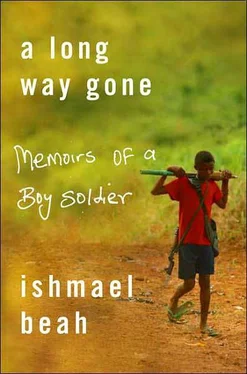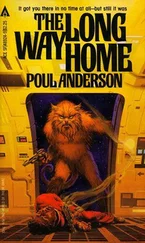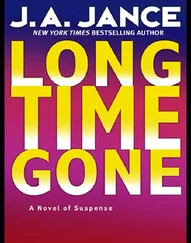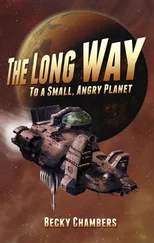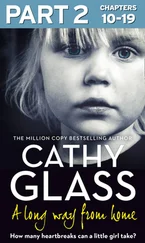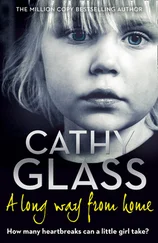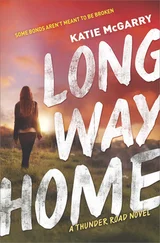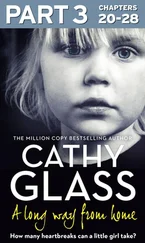When people received the message from the miserable messenger, they went into hiding in the forest that very night. But Khalilou’s family had asked us to stay behind and follow them with the rest of their property if things didn’t improve in the subsequent days, so we stayed put.
That night for the first time in my life I realized that it is the physical presence of people and their spirits that gives a town life. With the absence of so many people, the town became scary, the night darker, and the silence unbearably agitating. Normally, the crickets and birds sang in the evening before the sun went down. But this time they didn’t, and darkness set in very fast. The moon wasn’t in the sky; the air was stiff, as if nature itself was afraid of what was happening.
The majority of the town’s population was in hiding for a week, and more people went into hiding after the arrival of more messengers. But the rebels didn’t come on the day they said they would, and as a result, people started moving back into the town. As soon as everyone was settled again, another message was sent. This time the messenger was a well-known Catholic bishop who had been doing missionary work when he ran into the rebels. They didn’t do anything to the bishop except threaten that if he failed to deliver their message they would come for him. Upon receiving the word, people again left town and headed for their various hiding places in the forests. And we were again left behind, this time not to carry Khalilou’s family’s belongings, as we had already taken them into hiding, but to look after the house and to buy certain food products like salt, pepper, rice, and fish that we took to Khalilou’s family in the bush.
Another ten days of hiding, and still the rebels hadn’t arrived. There was nothing to do but conclude that they weren’t coming. The town came alive again. Schools reopened; people returned to their normal routines. Five days went by peacefully, and even the soldiers in town relaxed.
I would sometimes go for walks by myself in the late evening. The sight of women preparing dinner always reminded me of the times I used to watch my mother cook. Boys weren’t allowed in the kitchen, but she made an exception for me, saying, “You need to know how to cook something for your palampo *{Single.} life.” She would pause, give me a piece of dry fish, and then continue: “I want a grandchild. So don’t be a palampo forever.” Tears would form in my eyes as I continued my stroll on the tiny gravel roads in Mattru Jong.
When the rebels finally came, I was cooking. The rice was done and the okra soup was almost ready when I heard a single gunshot that echoed through the town. Junior, Talloi, Kaloko, Gibrilla, and Khalilou, who were in the room, ran outside. “Did you hear that?” they asked. We stood still, trying to determine whether the soldiers had fired the shot. A minute later, three different guns rapidly went off. This time we started to get worried. “It is just the soldiers testing their weapons,” one of our friends assured us. The town became very quiet, and no gunshots were heard for more than fifteen minutes. I went back to the kitchen and started to dish out the rice. At that instant several gunshots, which sounded like thunder striking the tin-roofed houses, took over town. The sound of the guns was so terrifying it confused everyone. No one was able to think clearly. In a matter of seconds, people started screaming and running in different directions, pushing and trampling on whoever had fallen on the ground. No one had the time to take anything with them. Everyone just ran to save his or her life. Mothers lost their children, whose confused, sad cries coincided with the gunshots. Families were separated and left behind everything they had worked for their whole lives. My heart was beating faster than it ever had. Each gunshot seemed to cling to the beat of my heart.
The rebels fired their guns toward the sky, as they shouted and merrily danced their way into town in a semicircle formation. There are two ways to enter Mattru Jong. One is by road and the other by crossing the river Jong. The rebels attacked and advanced into the town from inland, forcing the civilians to run toward the river. A lot of people were so terrified that they just ran to the river, jumped in, and lost the strength to swim. The soldiers, who somehow anticipated the attack and knew they were outnumbered, left town before the rebels actually came. This was a surprise to Junior, Talloi, Khalilou, Gibrilla, Kaloko, and me, whose initial instinct was to run to where the soldiers were stationed. We stood there, in front of mounted sandbags, unable to decide which way to go next. We started running again toward where there were fewer gunshots.
There was only one escape route out of town. Everyone headed for it. Mothers were screaming the names of their lost children, and the lost children cried in vain. We ran together, trying to keep up with each other. In order to get to the escape route, we had to cross a wet and muddy swamp that was adjacent to a tiny hill. In the swamp we ran past people who were stuck in the mud, past handicapped people who couldn’t be helped, for anyone who stopped to do so was risking his own life.
After we crossed the swamp, the real trouble started, because the rebels began shooting their guns at people instead of shooting into the sky. They didn’t want people to abandon the town, because they needed to use civilians as a shield against the military. One of the main aims of the rebels when they took over a town was to force the civilians to stay with them, especially women and children. This way they could stay longer, as military intervention would be delayed.
We were now at the top of a bushy hill immediately behind the swamp, in a clearing just before the escape route. Seeing the civilians all about to make it out, the rebels fired rocket-propelled grenades (RPGs), machine guns, AK-47s, G3s, all the weapons they had, directly into the clearing. But we knew we had no choice, we had to make it across the clearing because, as young boys, the risk of staying in town was greater for us than trying to escape. Young boys were immediately recruited, and the initials RUF were carved wherever it pleased the rebels, with a hot bayonet. This not only meant that you were scarred for life but that you could never escape from them, because escaping with the carving of the rebels’ initials was asking for death, as soldiers would kill you without any questions and militant civilians would do the same.
We dodged from bush to bush and made it to the other side. But this was just the beginning of many risky situations that were to come. Immediately after one explosion, we got up and ran together, with our heads down, jumping over fresh dead bodies and flames of burnt dried trees. We were almost at the end of the clearing when we heard the whizzing of another rocket grenade approaching. We sped up our steps and took dives into the bush before the grenade landed, followed by several rounds of machine gun fire. The people who were right behind us were not as lucky as we were. The RPG caught up with them. One of them caught the fragments of the RPG. He cried out loudly and screamed that he was blind. No one dared to go out and help him. He was halted by another grenade that exploded, causing his remains and blood to sprinkle like rain on the nearby leaves and bushes. All of it happened too fast.
As soon as we had crossed the clearing, the rebels sent some of their men to catch those who had made it into the bush. They started chasing and shooting after us. We ran for more than an hour without stopping. It was unbelievable how fast and long we ran. I didn’t sweat or get tired at all. Junior was in front of me and behind Talloi. Every few seconds, my brother would call my name, to make sure I wasn’t left behind. I could hear the sadness in his voice, and each time I answered him, my voice trembled. Gibrilla, Kaloko, and Khalilou were behind me. Their breathing was heavy and I could hear one of them hissing, trying not to cry. Talloi was a very fast runner, even when we were younger. But on that evening we were able to keep up with him. After an hour or maybe even more of running, the rebels gave up the chase and returned to Mattru Jong while we continued on.
Читать дальше
